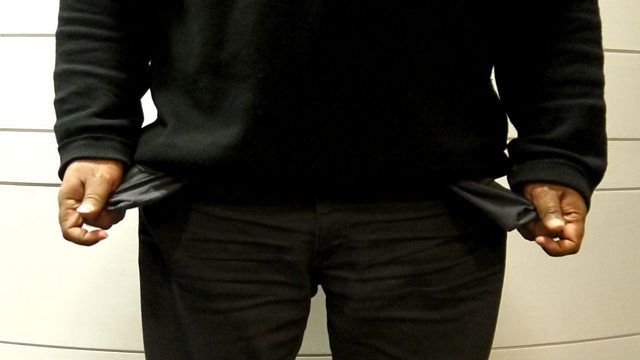Scarcity
How does scarcity affect our behaviour? Does it cloud our thinking or make us more innovative?
How does scarcity change our behaviour? Does it cloud our thinking or make us more innovative? And what about scarcity on a planetary scale - how would we cope if we ran short of the precious metals and gases which power modern life? Joining Bridget Kendall are Princeton psychologist Eldar Shafir, innovation strategist Simone Ahuja and chemistry professor Andrea Sella.
Last on
Clip
-
![]()
Princeton psychologist Eldar Shafir: The Suitcase of Scarcity
Duration: 00:41
Eldar Shafir

Eldar Shafir is the William Stewart Tod Professor of Psychology and Public Affairs at Princeton University and the Woodrow Wilson School of Public and International Affairs. He is also the author of (with Sendhil Mullainathan), in which he argues that when we perceive a real lack of something - food, time, money, friends - our way of thinking is altered. We concentrate on what it is we lack with a heightened sense of focus. This makes us more efficient at a task but is also to the detriment of the amount of thinking we can dedicate to other areas of our life. Eldar has recently been appointed by President Obama to the President’s Advisory Council on Financial Capability.
Simone Ahuja

Dr Simone Ahuja is an innovation strategist based in Minnesota and Mumbai. Her book , co-authored with Navi Radjou and Jaideep Prabhu, explores the concept and reality of jugaad, a Hindi word meaning inventiveness in the face of few resources. She believes that the West must look to places like India, China, and Africa for a new, bottom-up approach to frugal and flexible innovation. to see one of Simone’s prime examples of how scarcity can be reframed as abundance - the MittiCool, a totally green, off-the-grid fridge made of clay, invented by Mansukh Bhai Prajapati.
Andrea Sella

Andrea Sella is Professor of Inorganic Chemistry at University College London, where his research focus on the rare earth elements has led him to think more widely about scarcity. He says there are different kinds of scarcity within the periodic table. There is physical rarity, in the case of helium, and then there are other elements that are moderately common, but hard to actually get at. Both can become the subject of ‘engineered’ scarcity - when one particular state controls access to a stockpile or a majority source for economic or geopolitical reasons.
60 Second Idea to Change the World

Andrea Sella proposes a radically different pricing system for energy use. Because energy is invisible we take it for granted. We only notice it when others use more than us, or when its price changes. Yet as soon as we are wealthy enough, we treat it like a disposable consumer good, and weirdly, we price it accordingly – the more we use the cheaper it gets. We should instead price it progressively, just like our tax systems. Low use should be cheap giving the poorest more disposable income. But as individual usage rises, so should the price, making energy more expensive at the margin. So one hot shower a day is fine, but two could push you into the next price band. This will incentivise people to use less, whilst also increasing the return on investment for energy saving measures. (Photo courtesy of AP)
In Next Weeks’ Programme:
The modern alchemists who are turning our trash into gold…or at least into valuable products we want and need. With Adam Minter, Alison Lewis and Angela Murray.
Broadcasts
- Sat 18 Jan 2014 22:06GMT�鶹�� World Service Online
- Sun 19 Jan 2014 10:06GMT�鶹�� World Service Online
- Mon 20 Jan 2014 03:06GMT�鶹�� World Service Online
Do you use US dollars even though they are not your country’s official currency?
Podcast
-
![]()
The Forum
The programme that explains the present by exploring the past




